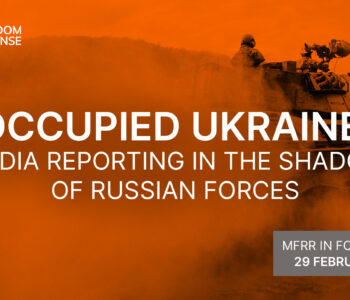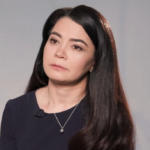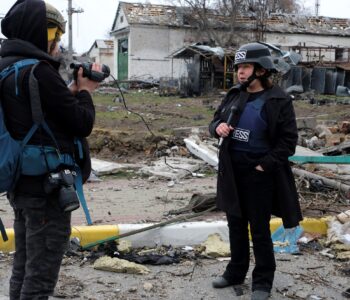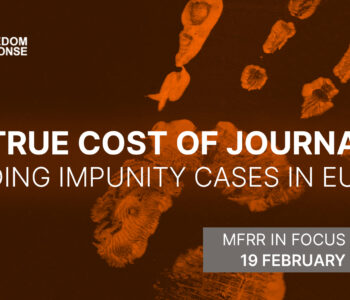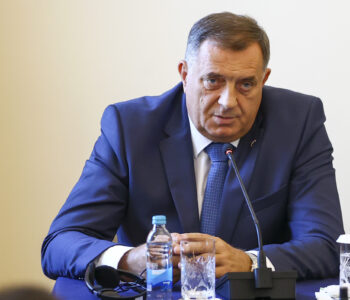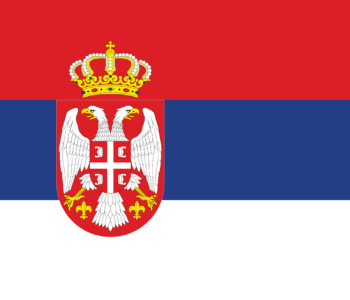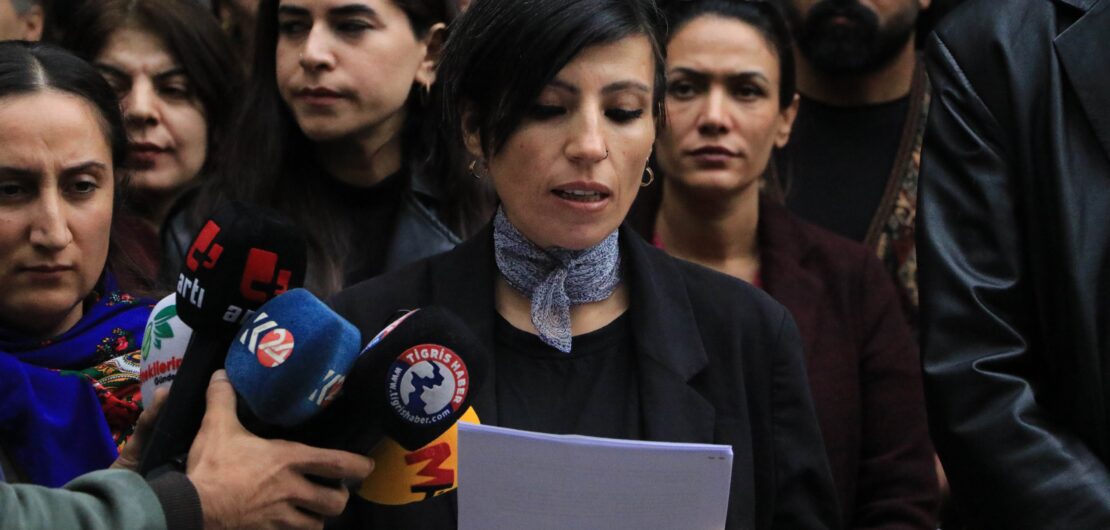 Library
Library
International Media Freedom and Human Rights Organisations Demand Release…
International Media Freedom and Human Rights Organisations Demand Release of Journalist Dicle Müftüoğlu in Upcoming Trial
As the next hearing of journalist Dicle Müftüoğlu approaches on February 29, 2024, we call for immediate attention to her case and her unjust detention. Müftüoğlu, Co-Chair of the Dicle Fırat Journalists Association (DFGD) , has been wrongfully held for over nine months on unsubstantiated terrorism charges in a case that starkly violates international legal standards and media freedom.
Turkish translation available here.
Case Overview: A Miscarriage of Justice
Müftüoğlu’s arrest occurred during a broader crackdown on Kurdish activists and politicians by the Ankara Prosecutor’s Office in April 2023. The circumstances of her detention, including her transfer to Ankara and the conditions therein, have raised serious concerns about her treatment and the respect for due process.
In court, the charges against Müftüoğlu have not been substantiated by any credible evidence. Her case is a textbook example of severe legal intimidation used to silence journalists who are critical of the government.
Investigative and Legal Irregularities
The investigation into Ms. Müftüoğlu’s activities has been marked by flagrant legal irregularities:
- Restriction of access to legal counsel and investigation files.
- Interrogation without legal representation, in clear violation of legal norms.
- Inhumane treatment during her transfer, including prolonged handcuffing and deprivation of basic needs.
The indictment itself is deeply flawed, dedicating only a small portion to Müftüoğlu and failing to provide any substantial evidence of her involvement in terrorist activities. Instead, it inappropriately conflates her journalistic work with terrorism, using her association with the Mesopotamia News Agency and attendance at public events as supposed evidence of wrongdoing.
As the undersigned organisations we call upon the authorities in Turkey to immediately release Dicle Müftüoğlu and drop all charges against her. We call upon the international community, media freedom, journalism and human rights organisations to join us in condemning this unjust detention and to urge Turkey to uphold its commitments to media freedom and human rights.
This statement was coordinated by the Media Freedom Rapid Response (MFRR), a Europe-wide mechanism which tracks, monitors and responds to violations of press and media freedom in EU Member States and candidate countries.
Uluslararası Basın Özgürlüğü ve İnsan Hakları Örgütleri Gazeteci Dicle Müftüoğlu’nun Bugünkü Duruşmasında Serbest Bırakılmasını Talep Ediyor
Gazeteci Dicle Müftüoğlu’nun 29 Şubat 2024 tarihinde görülecek duruşması öncesi, gazeteciye yönelik davaya ve haksız tutukluluğuna derhal dikkat çekilmesi çağrısında bulunuyoruz. Dicle Fırat Gazeteciler Derneği (DFGD) Eş Başkanı Müftüoğlu, uluslararası hukuk standartlarını ve basın özgürlüğünü açıkça ihlal eden bir davada, temelsiz terör suçlamalarıyla dokuz ayı aşkın bir süredir haksız yere tutuklu bulunuyor.
Davaya Genel Bakış: Bir Adalet Hatası
Müftüoğlu’nun tutuklanması, Nisan 2023’te Ankara Cumhuriyet Başsavcılığı tarafından Kürt aktivistlere ve siyasetçilere yönelik geniş çaplı operasyonlar sırasında gerçekleşti. Ankara’ya naki ve gözaltına alınma koşulları, kendisine uygulanan muameleye dair ve adil yargılama sürecine saygı konusunda ciddi endişelere yol açmıştır.
Mahkemede Müftüoğlu’na yöneltilen suçlamalar hiçbir inandırıcı kanıtla desteklenmemiştir. Müftüoğlu’nun davası, hükümeti eleştiren gazetecileri susturmak için kullanılan ağır yargısal gözdağının ders kitabı niteliğinde bir örneğidir.
Soruşturma ve Kovuşturma Sırasında Yaşanan Hukuka Aykırılıklar
Sayın Müftüoğlu’nun faaliyetlerine ilişkin soruşturmada bariz hukuki usulsüzlükler söz konusudur:
- Avukata ve soruşturma dosyalarına erişimin kısıtlanması.
- Yasal normları açıkça ihlal ederek yasal temsil olmadan sorgulama.
- Nakli sırasında uzun süreli kelepçeleme ve temel ihtiyaçlardan mahrum bırakma da dahil olmak üzere insanlık dışı muamele.
İddianamenin kendisi son derece kusurludur. Müftüoğlu’na sadece küçük bir bölüm ayırmış ve terörist faaliyetlere karıştığına dair önemli bir kanıt sunmamıştır. Bunun yerine, iddianame, gazetecinin Mezopotamya Haber Ajansı ile olan ilişkisini ve kamuya açık etkinliklere katılımını sözde suç kanıtı olarak kullanarak, gazetecilik faaliyetlerini uygunsuz bir biçimde terörizmle ilişkilendiriyor.
Aşağıda imzası bulunan örgütler olarak Türkiye’deki yetkilileri Dicle Müftüoğlu’nu derhal serbest bırakmaya ve hakkındaki tüm suçlamaları düşürmeye çağırıyoruz. Uluslararası toplumu, medya özgürlüğü, gazetecilik ve insan hakları örgütlerini bu haksız tutukluluğu kınamada bize katılmaya ve Türkiye’yi medya özgürlüğü ve insan hakları konusundaki taahhütlerini yerine getirmeye çağırıyoruz.

